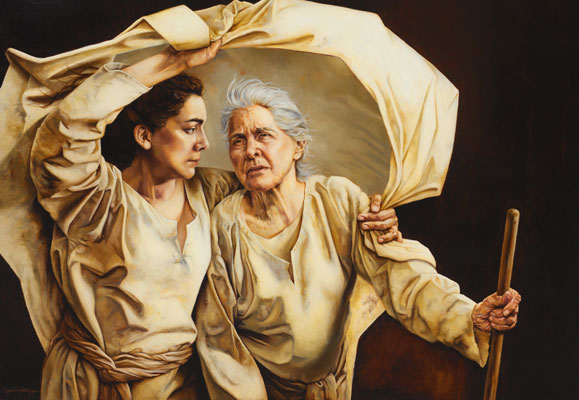- (Rth 1:1 ESV) In the days when the __________ ruled there was a __________ in the land, and a man of Bethlehem in __________ went to sojourn in the country of __________, he and his wife and his two sons.
- After Moses and the wanderings
- After the Israelites arrive in the __________ land
- Before the first king __________ took the throne
- During this time Israel had no human ruler
- There was a famine in the land
- Details of the famine are not known
- But if God is sovereign over __________ things
- This too is under His __________.
- And a man of Bethlehem in Judah
- A man named __________
- Of Bethlehem which means “house of __________”
- Now without any bread it seemed.
- The family went to __________ in the country of Moab
- To soujourn is to stay somewhere __________
- (Rth 1:2 ESV) The name of the man was Elimelech and the name of his wife __________, and the names of his two sons were __________ and __________. They were Ephrathites from Bethlehem in Judah. They went into the country of __________ and remained there.
- The name of the man was Elimelech which means __________ is my King
- And the name of his wife Naomi which means __________ or pleasant
- And the names of his two sons were Mahlon and Chilion
- Mahlon – Sickly
- Chilion – Pining
- They were Ephrathites from Bethlehem in Judah.
- People of the area of Ephrath
- Which later becomes known as __________
- All of these geographic hooks are helping us know where they are specifically to give historical and cultural context.
- They went into the country of Moab and remained there.
- Recall the history and commands of __________ against mingling with the __________.
- Now when Israel hit hard times, who did Elimelech and Naomi turn to?
- The God who proved time and again trusting that He would provide?
- No, the nation that saught to destroy their ancestors.
- (Rth 1:3 ESV) But Elimelech, the husband of Naomi, __________, and she was left with her __________ sons.
- The family now alone in a foreign land
- Turned away from their __________
- Rejected their __________
- And now __________ here also
- (Rth 1:4 ESV) These took Moabite __________; the name of the one was __________ and the name of the other __________. They lived there about __________ years,
- We don’t have a timeline on this
- How old were the boys? How long had they lived there before Eliemelech died?
- At least, they are there long enough to assimilate into the culture
- It was an unheard of thing in the __________ culture to share a meal with someone unclean like a __________
- How much more so to take one as a wife!
- Sharing a home, a bed, a life with an __________ pagan!
- (Rth 1:5 ESV) and both Mahlon and Chilion __________, so that the woman was left __________ her two sons and her husband.
- And both Mahlon and Chilion died
- Assumptively 10 years post marriage
- The __________ plan in Moab has become a long time indeed. Years, maybe decades.
- So that the woman was left without her two sons and her husband.
- Catch the lack of her name:
- The __________ was left.
- Not: __________ was left.
- It is a complete wash on her identity
- Gone from her people
- Gone from her land
- Gone from her culture
- Gone from her religion
- Her husband has died
- Now her sons have died as well
- Everything about her life before is gone
- Her __________ is erased.
- And we see the extent of this toward the end of chapter 1
- (Rth 1:20 ESV) She said to them, “Do not call me Naomi; call me Mara, for the Almighty has dealt very bitterly with me.
- Naomi: __________
- Mara: __________
- The story is clear:
- Calamity arrived in __________
- __________ chose to abandon all that God promised for all that the pagan world had
- Calamity, like death and like life are all under the control of a sovereign __________
- How do we trust God when He allows calamity in our lives?
________________________________________
________________________________________
________________________________________
- There is an old saying:
- “God will not give you more than you can handle.”
- Its a lie.
- He will and He __________.
- But He also gives us His __________
- And the __________, His people
- Both __________ us up through the thick of it
- And when life does overcome us
- He gave us His __________ Jesus
- Who guaranteed our place in heaven for eternity
- When our time on this earth comes to an end.

